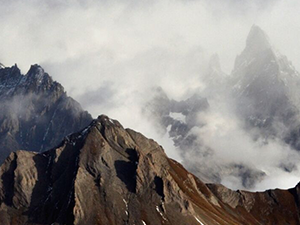ECOSYSTEMS & BIODIVERSITY
CLIMATE TARGET SYSTEM
ECOSYSTEMS & BIODIVERSITY
CLIMATE TARGET SYSTEM

The Alpine area offers a wide range of specific natural and cultural landscapes with a great importance for (endangered) species of the flora and fauna. They face impacts from climate change, changes in agricultural use, urbanisation and infrastructure development. All these require specific actions including restoration of specific natural and cultural elements, biotopes and ecosystems. At the same time Alpine specific landscape and ecosystems – like pasture areas – and their sustainable management ensure the maintenance, resilience and promotion of biodiversity and thus the provision and restoration of important ecosystems and services. As climate change leads to shifts of species, habitats and ecological processes, especially the ecological connectivity of protected areas and other conservation areas play a crucial role for securing ecosystem services in the Alps.

